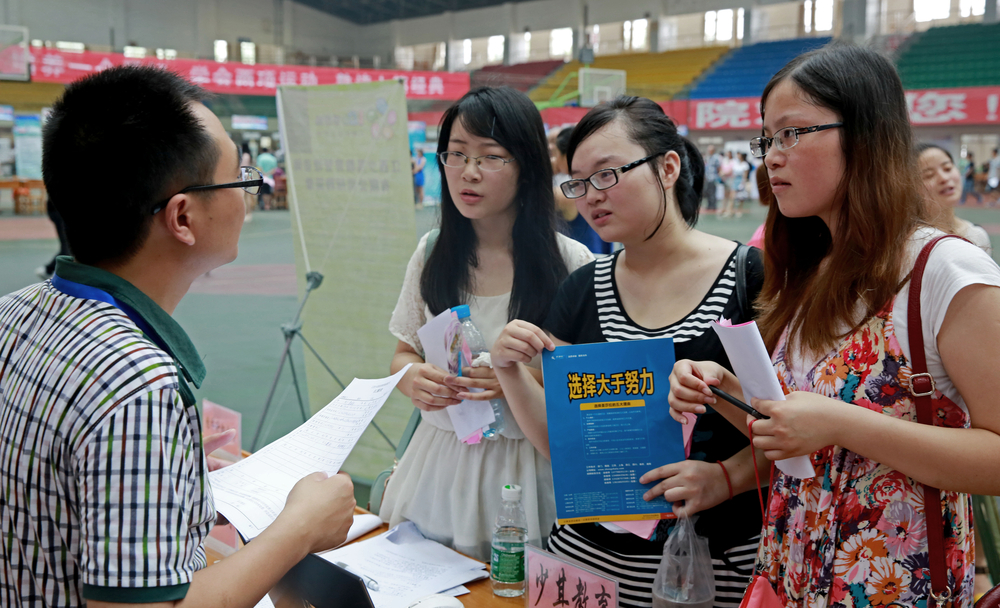February 2022 labour news round-up: Young workers are dying from excessive hours
28 February 2022Starting with this first edition, China Labour Bulletin publishes a news round-up for our readers to keep up to date with the latest changes affecting China’s society and labour conditions.
There has been an increase in detailed media reports on labour conditions of various industries in recent years, with one notable example being the Renwu (People) article on working conditions for China’s delivery drivers as their social role gained prominence during the pandemic. This and other reports have investigated social events related to workers, becoming valuable resources to deepen our understanding of social changes that affect workers.
In this issue, we cover deaths from overwork, food delivery workers trending toward full-time, a rise in deadly gas line explosions, and university graduates express anxiety about job prospects.
I. Overwork deaths in IT industry
A 25-year-old content moderator for the video sharing website Bilibili died of an acute brain haemorrhage on 4 February. Bilibili denied he worked any overtime during the Lunar New Year, but the platform quickly announced that it was hiring an additional 1,000 reviewers to ease the work pressure on its content moderation staff.
A number of reports have found that Bilibili content reviewers are working long hours and under intense pressure, fearing performance appraisal downgrades for any mistakes. Together with the sudden death of a ByteDance algorithm engineer and of an architect, this Bilibili incident is one of three young worker deaths suspected to be related to overwork just this month.
The question-and-answer platform Zhihu, meanwhile, has been accused of using surveillance software to monitor workers during layoffs. The software, developed by a listed company in Shenzhen, can monitor employees' browsing and chat records, hence checking the number of times that employees have browsed job search websites and mentioned leaving their jobs. The software is no longer advertised on the developer’s website.
II. Trends in the platform economy
An article from TMTPost suggested that food delivery workers are moving towards full-time employment and formal career development. The article quotes data from a recently published Ele.me report, saying that over 40% of the platform's riders are full-time; as for the 60% with other incomes, about 30% are engaged in delivery work on other platforms. With some calculations, about 58% of Ele.me’s workers now rely on food delivery as their sole income. Ele.me also announced new adjustments to its delivery time algorithm and rating policy, in response to recent outcry over their control over workers.
III. Gas explosions
Gas accidents in the last five years have dropped from 925 in 2017 to 615 in 2020, but there were 544 in the first half of 2021 alone, according to Jiemian (界面新闻). A gas explosion in Shiyan, Hubei, which killed 26 people and injured 138 in 2021, for example, has become the largest gas accident in recent years.
Caixin reported that China will renew about 100,000 kilometres of old gas pipes during the 14th Five-Year Plan period (2021-2025), as well as rectify safety hazards in old neighbourhoods, restaurants and other public places, since ageing gas pipes and improper use by users are recognised as a major causes of accidents. Jiemian, however, points out that improper construction and lax local enforcement are also to blame: improper subcontracting of projects and reduced quality as a result of rushed schedules.

Photograph: humphery / Shutterstock.com
IV. University students express anxiety about career prospects
The number of postgraduate applicants in China has risen to 4.57 million this year, an increase of 800,000 (21%) compared to 2021, and 1.27 times more compared to 2017. This is according to an article from the CCP-affiliated news centre BanYueTan (半月谈), which points out that many students are deeply anxious about employment, believing that they cannot find the job of their choice with only a bachelor's degree.
The mentality of "not wanting to work in a low-grade job" among college students is also strong. For example, almost all medical students go to graduate school to compete for jobs in large hospitals and avoid working in local hospitals. Other data on postgraduate applicants can be found in the 2022 National Postgraduate Enrolment Survey Report.
